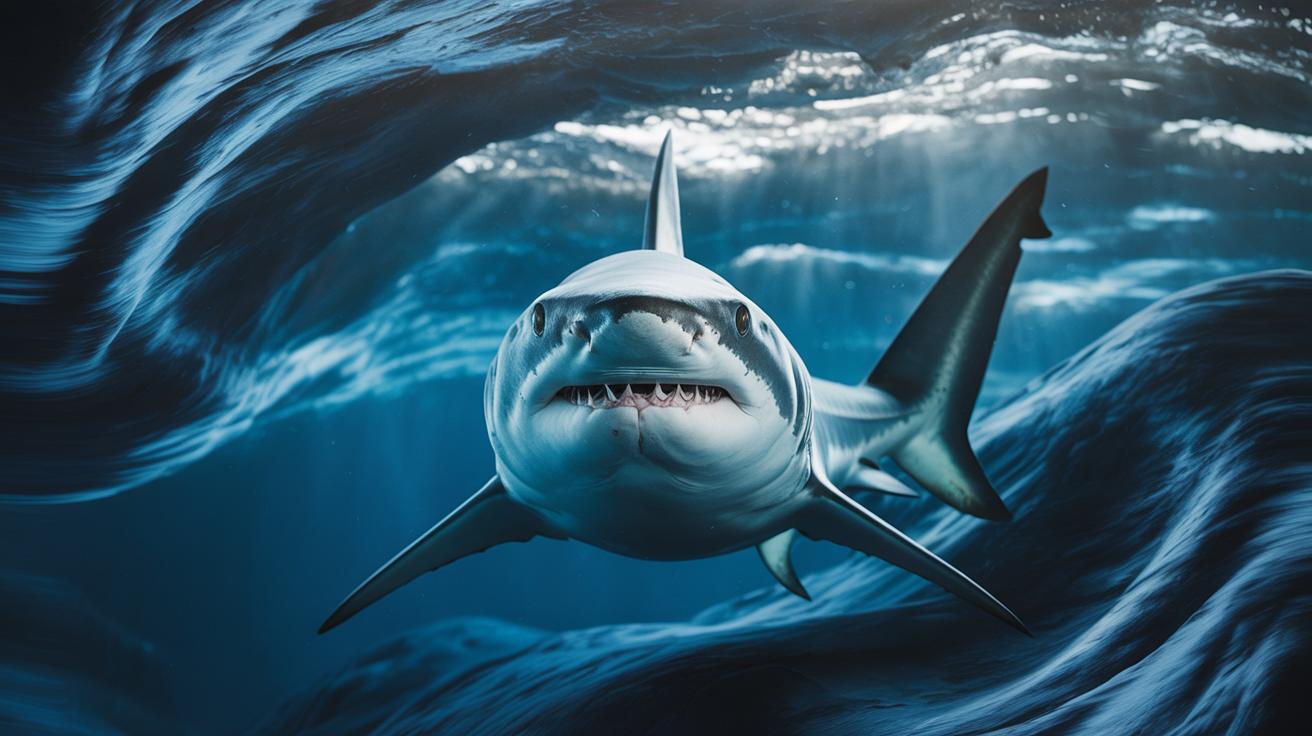What You Need to Know
- 🦈 Sharks use their nostrils not for breathing, but for detecting scents, making them adept hunters in the ocean.
- 🔬 Their nostrils contain specialized sensory cells that can pick up chemical cues, allowing them to detect prey from miles away.
- 🌊 The olfactory system works in tandem with other senses, such as the lateral line system and electroreceptors, to provide a comprehensive environmental awareness.
- ⏳ Evolution has fine-tuned their sensory capabilities, enabling sharks to thrive in diverse marine habitats and maintain energy efficiency.
- 🌍 Understanding these adaptations is crucial for conservation efforts and could inspire technological innovations through biomimicry.
Sharks have long fascinated marine enthusiasts and scientists alike, not only for their predatory prowess but also for their unique anatomical features. Among these features, the presence of nostrils, or nares, has sparked curiosity. How do these ancient creatures, which lack lungs, utilize their nostrils? This question leads us into a deeper understanding of how sharks have evolved to become some of the most efficient and effective hunters in the ocean. Through exploring this lesser-known aspect of shark physiology, we can gain insights into their survival mechanisms and the intricate balance of marine ecosystems.
The Role of Shark Nostrils in Detection
Unlike humans, sharks do not use their nostrils for breathing. Instead, their nostrils serve a highly specialized function: detection of scent. Sharks possess two nares, located beneath their snouts, which lead to small sacs filled with sensory cells. These cells are adept at detecting chemicals dissolved in water, giving sharks an acute sense of smell. This adaptation is crucial for locating prey.
In fact, sharks can detect blood from miles away, a testament to the sensitivity of their olfactory senses. This ability allows them to track injured or distressed prey with precision. The structure of the nostrils enables water to flow continuously over these olfactory cells, ensuring constant monitoring of their surroundings. This sense of smell is not just for hunting; it also plays a role in navigation, mating, and recognizing territorial boundaries.
Beyond Smell: The Multifaceted Sensory System
While the olfactory capabilities of sharks are impressive, they are just one part of a broader sensory system. Sharks are equipped with a lateral line system, which detects vibrations and movements in the water, and electroreceptors known as ampullae of Lorenzini, which sense electrical fields produced by living organisms. These sensors work in concert with the olfactory system, allowing sharks to form a comprehensive picture of their environment.
The combination of these sensory tools makes sharks formidable predators, able to hunt in the darkest depths and murkiest waters. Their ability to detect even the faintest disturbances is crucial for survival in the competitive marine world. This sensory network is a result of millions of years of evolution, positioning sharks at the top of the oceanic food chain.
Evolutionary Advantages of Shark Nostrils
The specialized nostrils of sharks highlight a significant evolutionary advantage. Over millions of years, sharks have honed their senses to adapt to various marine environments. Their nostrils, in particular, have evolved to detect minute chemical cues that are vital for survival. This evolutionary trait has allowed sharks to thrive in diverse habitats, from shallow coastal waters to the deep sea.
Moreover, the efficiency of their olfactory system reduces the energy expenditure required to locate prey. By relying on chemical signals, sharks can conserve energy, which is crucial for maintaining their high metabolic rates. This evolutionary adaptation underscores the importance of sensory specialization in the animal kingdom.
Implications for Conservation and Research
Understanding the role of shark nostrils and their sensory capabilities has significant implications for conservation and research. As apex predators, sharks play a crucial role in maintaining the balance of marine ecosystems. Insights into their sensory systems can help devise strategies to protect them from threats such as overfishing and habitat destruction.
Research into these sensory adaptations also opens avenues for biomimicry in technology, potentially leading to innovative developments in underwater navigation and detection systems. The study of sharks and their unique features offers valuable lessons in adaptation and resilience, shedding light on the complex interplay between organisms and their environments.
The remarkable sensory systems of sharks, with their specialized nostrils at the forefront, continue to intrigue and inspire. As we delve deeper into understanding these oceanic predators, we uncover the intricate mechanisms that have enabled their survival for millions of years. What other mysteries might be hidden beneath the waves, waiting to be discovered, and how can our understanding of these ancient creatures help us better protect our oceans for future generations?
Did you like it?4.4/5 (22)







9 comments
Isabelle
Thanks for the deep dive into shark nostrils! I never thought I’d be so interested in fish noses!
colton
Do all species of sharks have the same level of olfactory acuity, or does it vary? 🧐
theodoreechoes7
This is fin-tastic! I hope our understanding of sharks helps in their conservation efforts.
Julian
Is there any research on how pollution affects a shark’s sense of smell? Would love to know more about that.
victoria
Haha, imagine if humans had shark-level smelling abilities! Grocery shopping would be a whole new experience! 😄
AdamEmpress
Could the technology inspired by sharks help us build better submarines? That would be a game changer!
wesley_spark5
Thanks for sharing this fascinating info! I had no idea sharks could smell so well without lungs. Mind-blowing!
Aiden
So, do shark nostrils smell the same things we do, but underwater? 🤔
Riley_Prism
This post is jaw-some! 🦈 I never knew sharks could be so efficient with their senses. Thanks for enlightening us!